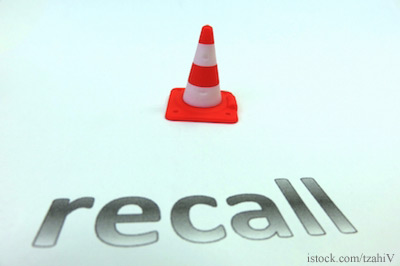A new study published in Analytical Chemistry has revealed that an ingredient common in many dietary supplements, weight loss supplements, and workout supplements has never been studied for safety and efficacy in human beings. The ingredient is called β-methylphenylethylamine (BMPEA). It is chemically almost identical to amphetamines, so it is called an amphetamine isomer.
 Canadian health officials pulled supplements that contain BMPEA from store shelves in December 2014. But in the U.S., the FDA has said that the stimulant “does not identify a specific safety concern at this time.” Many scientists disagree.
Canadian health officials pulled supplements that contain BMPEA from store shelves in December 2014. But in the U.S., the FDA has said that the stimulant “does not identify a specific safety concern at this time.” Many scientists disagree.
In the United States, the multi-billion-dollar supplement industry is not well regulated. In fact, what is in the dietary supplement you buy doesn’t always match the ingredient list on the label. And the supplement industry lobbies Congress to block laws that would hold them to stricter standards. Former supplement industry officials are actually the chief regulators of that industry at the FDA. The FDA simply identifies and removes mislabeled, adulterated, and “dangerous” supplements from the marketplace; it does not monitor the supplements for content or accuracy. Supplements can only contain ingredients that were on the market before 1994 or are part of the food supply.
According to the study, the eleven supplements that contain BMPEA, in amounts ranging from 31 mg to 1 mg per dose, in descending order, are GAT JetFuel T-300, Fastin-XR, Yellow Scorpion, Hi-Tech Pharmaceuticals Black Widow, Lipodrene HARDCORE, Vitacost Aro Black Series Burn, iForce Dexaprine XR, Lipodrene XTREME, Isatori MX-LS7, GAT JetFuel Superburn, and Hi-Tech Stimerex-ES. BMPEA was found in more than half of all brands of supplements labeled as containing Acacia rigidula sold in the U.S.
BMPEA is sold as a botanical extract. Studies of efficacy and safety in people have never been performed. BMPEA is not classified as a drug, but was used only as a “research chemical” until 2013, when the FDA identified it in supplements. It is listed on the label as “Acacia rigidula”, even though BMPEA is not identified or extracted from that plant. Instead, the dosage levels “strongly suggest” that it is synthetically produced and placed in the supplement, according to the study.
BMPEA has “pressor effects” in dogs and cats. A 20 mg intravenous dose of BMPEA in a dog resulted in a 50 mm Hg rise in blood pressure. The drug does cross the blood-brain barrier in rats.
Because of these effects, the study authors recommend that “physicians should remain vigilant for patients presenting with toxicity from sports and weight loss supplements as they may contain undisclosed stimulants such as BMPEA.” In addition, consumption of this chemical could have consequences for atheletes subject to urine drug testing; BMPEA is banned by the World Anti-Doping Agency.
The substance is banned in Europe, since the Food Standards Agency has said that Acacia rigidula cannot be sold since it was not used as a food and there is no evidence of its safety. The authors of the study state, “we recommend that supplement manufacturers immediately recall all supplements containing BMPEA, and that the FDA use all its enforcement powers to eliminate BMPEA as an ingredient in dietary supplements. Consumers should be advised to avoid all supplements labeled as containing Acacia rigidula.”




